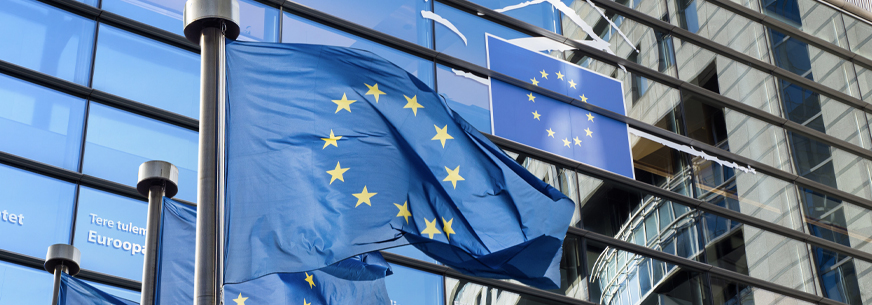
Efrag consultation deadline puts investors and companies under pressure

While the European Financial Reporting Advisory Group is seeking feedback on the new sustainability standards drafts, ESG professionals are feeling the pressure of a global “regulatory race”.
The European Financial Reporting Advisory Group has released the first draft of EU sustainability reporting standards and fired the starting gun on a 100-day public consultation on the proposals.
The drafts have gone to public consultation without a review by Efrag’s Sustainability Reporting Board. The European Commission still indicates on its website that it would adopt the standards, which are part of the Corporate Sustainability Reporting Directive, by October. The plan is for companies to start applying the new disclosure rules from 2023 and report the following year.
The pace of the consultation has left asset managers and companies with a relatively tight deadline to absorb and respond to the drafts, prompting one sustainability consultant to talk of a “regulatory race” between the EU and other jurisdictions.
Gabriel Webber Ziero, an expert in sustainable finance and lecturer at the University of Zurich, said: “These need to be ready as soon as possible to enable people to understand and implement them, but we are also in a sort of regulatory race.” He mentioned the US Securities and Exchange Commission’s recent consultation on climate-related disclosures and noted the UK’s intention of introducing greater reporting obligations as the country considers a national taxonomy, similar to the EU’s. “So there is an element of trying to come first in order to influence these further developments,” he said.
Meanwhile, the sustainability director at a leading asset management firm said he was trying to find the time to absorb the Efrag drafts amid a welter of other issues, such as the EU Corporate Sustainability Due Diligence Directive and initiatives in other jurisdictions from the US to Singapore. “The scale of what is happening makes it hard. You might think three months is a long time – but with this amount of detail it is not long,” he said.
Nicola Stopps, chief executive and founder of consultancy Simply Sustainable, said a key challenge for Efrag’s consultation would be to meet the expectations of all stakeholders.
“Although Efrag will provide an important contribution to the global debate on accounting [and] financial and corporate reporting, there is a high risk it will still leave many financiers, business leaders, non-governmental organisations and sustainability experts unfulfilled,” she said. “Investment professionals want fewer, clearer indicators to gauge ESG, but sustainability experts want smarter and more holistic measurements to determine the true impact a company has. However, the consultation gives a voice to all these stakeholders and hopefully a hybrid of simple but effective measurement will prevail.”
She added that complaints of ESG complexity were often used as an excuse for “reluctance to understand the core factors that make a sustainable business”, but agreed that the plethora of standards and consultations might unintentionally end up putting too much attention on reporting rather than action.
“I do agree there are far too many indices, disclosure frameworks and reporting standards. Unusually, I find myself agreeing with Elon Musk – perhaps we need to rethink reporting on ESG entirely and focus more on global impact,” she said.
Ding Li, senior strategist at sustainability adviser Longevity Partners, echoed the sentiment. “I look at this and it reminds me of alphabet soup. But I see where they are coming from, and they have to align with the taxonomy, and this will be a legal requirement,” she said. “There are already enough ESG frameworks out there, and most things have already been covered by the Global Reporting Initiative.”
Efrag has worked in cooperation with GRI on the exposure drafts, which have also been designed to align with the principal adverse impact (PAI) regime in the EU’s Sustainable Finance Disclosure Regulation. PAI indicators refer to negative and material, or likely to be material, effects on sustainability factors caused by a financial firm’s investment decision or advice.
But the EU sustainability reporting drafts have a broader scope than the SFDR, encompassing not just financial services and its products, but all large-scale business across the EU.
Ziero says key issues for the consultation will include the application of double materiality, when impacts are material to society or the environment, and financially material to a business’s value; the extent of a company’s value chain, which the drafts define in the broadest sense; and comparability – defining the precise metrics that need to be reported.
The last of these has long been a challenge that businesses have faced when addressing sustainability. Ziero welcomed the inclusion in Efrag’s consultation of potential reporting templates. “One of the key objectives of the Efrag is transparency and comparability. But even though we have a common baseline, a common set of standards, how can we ensure comparability if we don’t have a common template on the basic indicators? So I was quite happily surprised to find that the [European Sustainability Reporting Standards] drafts have some visual ideas of how the disclosures would work,” he said.
Similar Articles

UK Climate Change Act remains legally sound 15 years on, experts say

Nature degradation could cause financial losses to the UK economy greater than Covid-19 and 2008 financial crash


